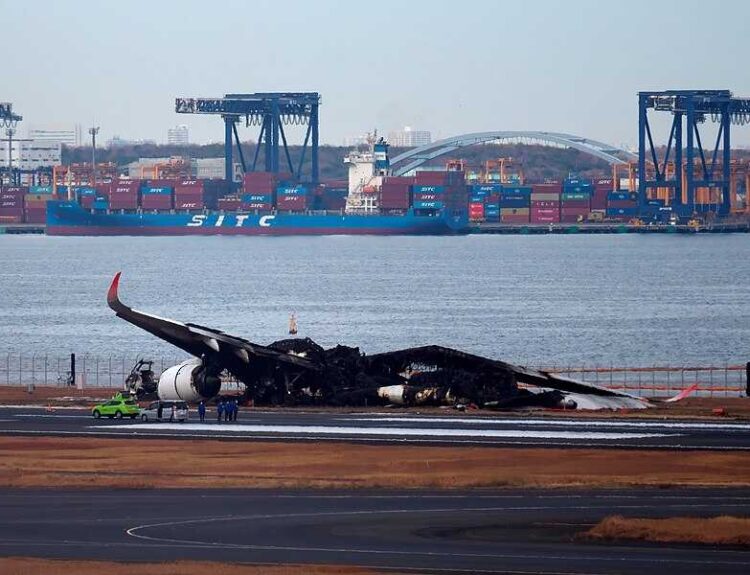Diplomatic dialogue aims to prevent conflict over Taiwan and South China Sea disputes.
- U.S. and Chinese militaries are resuming diplomatic talks after a two-year freeze.
- Recent meetings include U.S. officials with senior Chinese military leaders.
- The Biden administration prioritizes military communication to prevent conflict.
- Tensions remain high over Taiwan and the South China Sea disputes.
- China views Taiwan as a sensitive issue and has not ruled out military action.
- The U.S. is committed to defending Taiwan and its allies in the region.
- Improved communication is seen as beneficial for both nations amid economic challenges.
The U.S. and Chinese militaries are cautiously re-engaging in diplomatic discussions after a two-year hiatus, aiming to reduce the risk of confrontation as tensions rise over China’s actions in the South China Sea and its support for Russia. The Biden administration has made it a priority to restart talks with military leaders, despite previous resistance from Beijing. Recently, U.S. officials have successfully arranged meetings with high-ranking Chinese military officials, including Gen. Wu Yanan, who oversees operations in the South China Sea. Wu is expected to attend a military conference in Hawaii soon. Additionally, the Pentagon has sent Michael Chase, a deputy assistant secretary of defense, to the Xiangshan Forum in Beijing, which gathers defense officials from various countries to discuss global security. The U.S. defense official emphasized the importance of maintaining open lines of communication to prevent competition from escalating into conflict. Military relations between the two nations deteriorated after former House Speaker Nancy Pelosi’s visit to Taiwan in August 2022, which led China to sever several communication channels. However, a summit between President Biden and Chinese leader Xi Jinping last November paved the way for renewed military ties. While recent meetings have been framed as progress, both sides remain firm on their core security concerns. During a meeting between Gen. Zhang Youxia of China and U.S. national security adviser Jake Sullivan, Zhang accused the U.S. of colluding with Taiwan and demanded an end to arms sales to the island. Sullivan reiterated the U.S. commitment to military operations in the South China Sea, despite China’s objections. The U.S. has also strengthened security ties with allies, including establishing a new military command in Japan. Chinese officials have labeled Taiwan as the most sensitive issue in U.S.-China relations, viewing the island as part of its territory and not ruling out military action to assert control. The U.S. is legally obligated to provide Taiwan with defense capabilities, maintaining a policy of ‘strategic ambiguity’ regarding potential military intervention. The South China Sea has become a flashpoint, particularly with tensions between China and the Philippines. The U.S. has pledged to defend the Philippines if territorial disputes escalate. As the risk of conflict grows, the U.S. military’s Indo-Pacific Command has indicated a willingness to escort Philippine vessels in the region. For China, re-establishing communication with the Pentagon alleviates concerns amid domestic economic challenges and international trade pressures. Experts suggest that resuming military ties is a low-cost move for China, as the absence of dialogue was an unusual situation. Improved communication channels are crucial to avoid misunderstandings during crises. Chase’s attendance at the Xiangshan Forum marks the highest-level U.S. participation since 2019, following a hiatus due to the pandemic. While other countries send higher-ranking officials to such forums, the U.S. has opted for lower-level representation in the past. As the conflict in Ukraine continues, U.S. officials have expressed concerns over China’s support for Russia’s military efforts, highlighting a complex relationship between the two nations.·
Factuality Level: 8
Factuality Justification: The article provides a detailed account of the current state of U.S.-China military relations, including specific meetings and statements from officials. It avoids sensationalism and presents information in a factual manner. However, it includes some opinions from experts that could be interpreted as bias, and there are minor instances of redundancy in discussing the importance of communication between the two militaries.·
Noise Level: 8
Noise Justification: The article provides a detailed analysis of the current state of U.S.-China military relations, highlighting key meetings, tensions, and the implications of these interactions. It includes specific examples and quotes from officials, which support its claims. The article stays on topic and avoids irrelevant information, while also addressing the broader context of international relations. However, it could benefit from deeper exploration of long-term trends and potential solutions.·
Key People: Jake Sullivan (White House national security adviser), Gen. Zhang Youxia (Vice chairman of the Communist Party’s Central Military Commission), Gen. Wu Yanan (Senior Chinese military official), Michael Chase (Deputy assistant secretary of defense for China, Taiwan and Mongolia), Nancy Pelosi (Former House Speaker), Xi Jinping (Chinese leader), Lloyd Austin (U.S. Defense Secretary), Dong Jun (Chinese Defense Minister), Kurt Campbell (Deputy Secretary of State), Dylan Loh (Assistant professor at Nanyang Technological University)
Financial Relevance: Yes
Financial Markets Impacted: The article discusses U.S.-China military relations, which can influence global markets, particularly in defense, trade, and geopolitical stability.
Financial Rating Justification: The article addresses diplomatic and military engagements between the U.S. and China, which are crucial for global economic stability and can affect financial markets, especially in sectors related to defense and international trade.·
Presence Of Extreme Event: No
Nature Of Extreme Event: No
Impact Rating Of The Extreme Event: No
Extreme Rating Justification: The article discusses diplomatic engagements and military relations between the U.S. and China, but does not report on any extreme event that occurred in the last 48 hours.·
Move Size: No market move size mentioned.
Sector: All
Direction: Neutral
Magnitude: Medium
Affected Instruments: No
 www.wsj.com
www.wsj.com 





